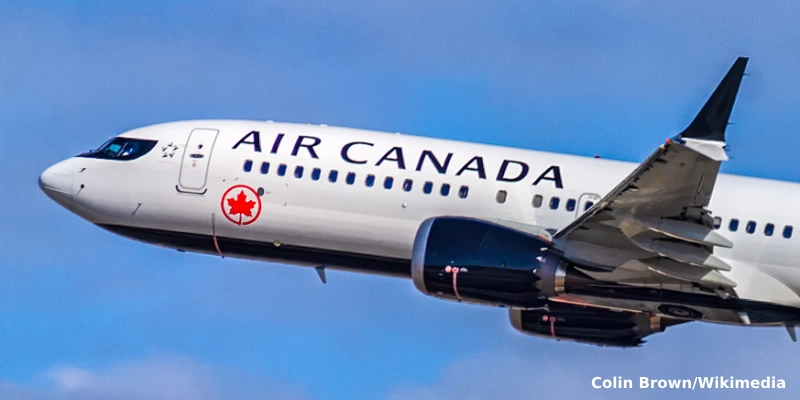Air Canada announced on Thursday that it expects to cancel dozens of flights by the end of the day and approximately 500 flights on Friday, affecting 100,000 passengers, as a strike by its flight attendants looms on Saturday.
A Complex Air Network That Can’t Be Stopped “Just by Pressing a Button”
Mark Nasr, the airline’s Chief Operations Officer, explained that the complexity of its network—which operates more than 250 aircraft to destinations in 65 countries—requires a gradual reduction in operations ahead of time. Restoring full service, he said, could take up to a week.
“This isn’t a system we can start or stop just by pressing a button,” Nasr stated in Toronto.
Data from FlightAware shows that by midday Thursday, Air Canada had already canceled nine flights.
Impact on Tourism and Political Pressure
The potential strike threatens to disrupt passenger travel, affect the tourism sector during peak season, and put pressure on the Liberal government led by Mark Carney. The airline has asked the government to intervene and impose binding arbitration.
→ Air Canada to Fly to Cartagena from Toronto and Montreal in Winter 2025-2026 Season
Air Canada and its low-cost subsidiary, Air Canada Rouge, serve 130,000 customers daily. Additionally, it is the foreign airline with the most flights to the U.S.
Meanwhile, United Airlines, a codeshare partner, issued a travel waiver to accommodate changes for its customers.
Passengers Between Uncertainty and Support
While some travelers expressed support for the flight attendants, others fear losing their vacations or being stranded.
David Nguyen, a 28-year-old pharmacist in Cancún, worries his return flight to Toronto on Friday may be canceled. He tried to rebook, but refundable tickets were sold out, and the remaining options cost over CAD 1,000.
Summer Mehdi, a 19-year-old university student, fears her family’s trip to Portugal and France, scheduled for Saturday, is at risk: “We 100% support the strike, but we wish there was more communication.”
A Dispute Over Unpaid Work
Employment Minister Patty Hajdu urged both sides to return to the negotiating table. However, the union—the Canadian Union of Public Employees (CUPE)—accuses the company of ignoring its latest proposal and seeking government intervention.
The core of the conflict lies in how flight attendants are paid. Traditionally, they are only compensated when the aircraft is in motion. The union demands payment for all hours worked, including boarding and ground delays.
Air Canada offered to pay for some of these hours but at only 50% of the hourly rate, along with a total wage increase of 38% over four years, including 25% in the first year. CUPE rejects binding arbitration and insists on negotiating substantial improvements.
Tensions flared when an Air Canada press conference was abruptly cut short by protesting union members holding signs.
This conflict jeopardizes Canada’s air connectivity and reignites the debate over fair wages and working conditions in commercial aviation. With the countdown to Saturday underway, both the tourism industry and thousands of passengers remain on edge.
Related Topics
Wingo Restarts Flights Between Medellín and Caracas
JetSMART Requests Authorization for Lima-Bogotá Route
Copa Airlines Expands Capacity in Venezuela: 17 Weekly Frequencies Between Panama and Caracas Starting in March
Rutaca Airlines Resumes Flights Between Caracas and Punta Cana Starting in March
Un apasionado por la aviación, Fundador y CEO de Aviación al Día.
